I remember last visiting this over a decade ago -- or was it an entirely different building? This seems much larger than the one I recall... In any case, on that last visit I saw lots of cactus and other warm-weather plants, but mainly desert-growers. There are still a few of those here today, but the planting is much more diverse.
Although it's still warmer in the temperate house than it is outdoors, it is quite dry and comfortable. There is a wide mix of different planting areas here, all relatively small. Bog gardens full of carnivorous plants, little pools of water full of pond plants, and this courtyard:
Cyclamens everywhere right now, this area made me realize that this should probably called the "California house", or perhaps "Mediterranean house" as it seems that everything planted here would thrive in that climate. No cactus in sight though:
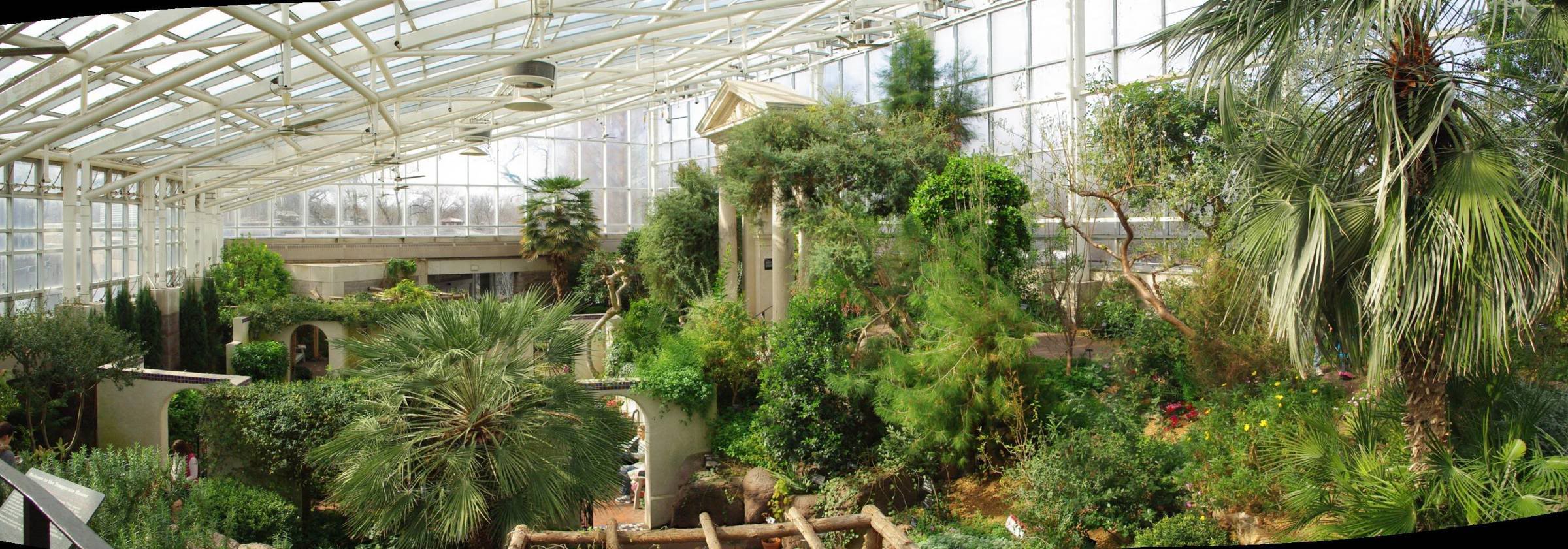 |
| Panoramic view of the temperate house. I'd vacation here. |
Only when I climbed the stairs that lead to the exit did I see the beds filled with the succulents and heat-loving cactus that I remember from those previous long-ago visits. (I know these aren't cactus -- the cactus photos are later in the post.)
These were the most interesting plants in this building to me -- at least right now (some of the other plantings were semi-dormant, or being cleaned up a bit).
A couple of Aloes:
 |
| Aloe suzannae |
Some Euphorbias:
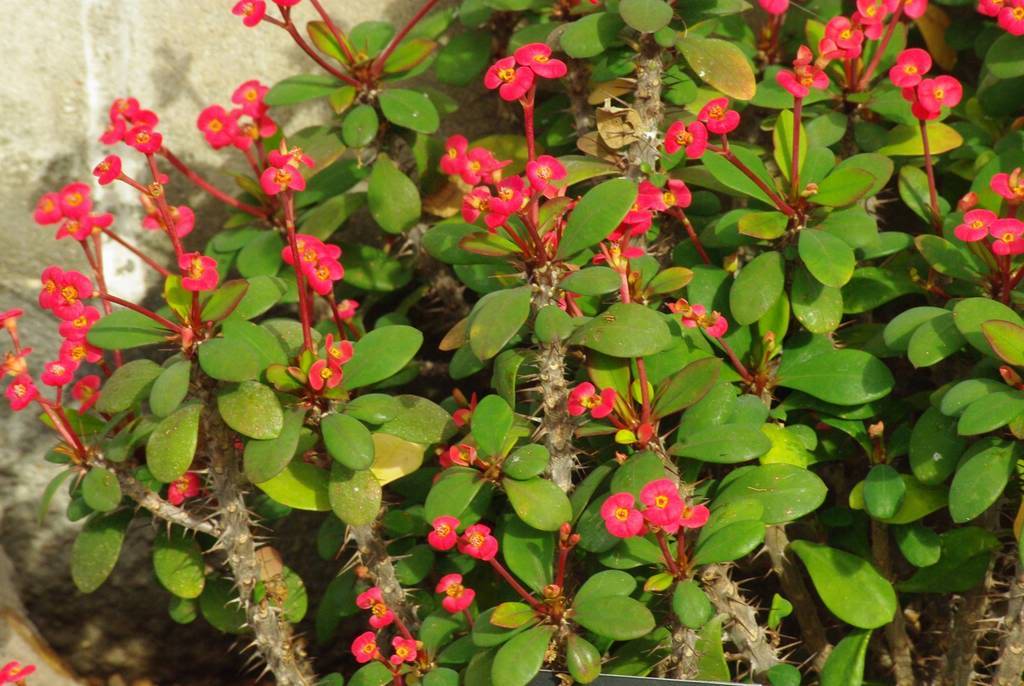 |
| Euphorbia milii ("Crown of thorns") |
 |
| Alluaudia humbertii |
And the cactus of course, starting with this warm-climate prickly pear, that unlike the cold-hardy versions outdoors show no signs of winter shriveling:
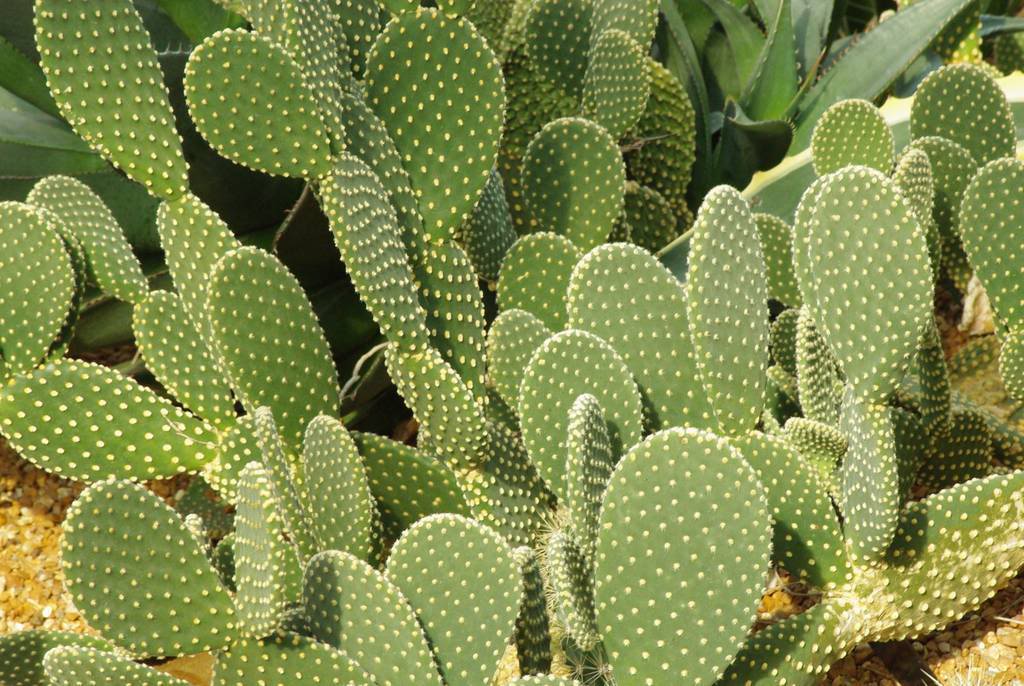 |
| Opuntia microdasys |
I am definitely getting one of these Totem pole cactus this year:
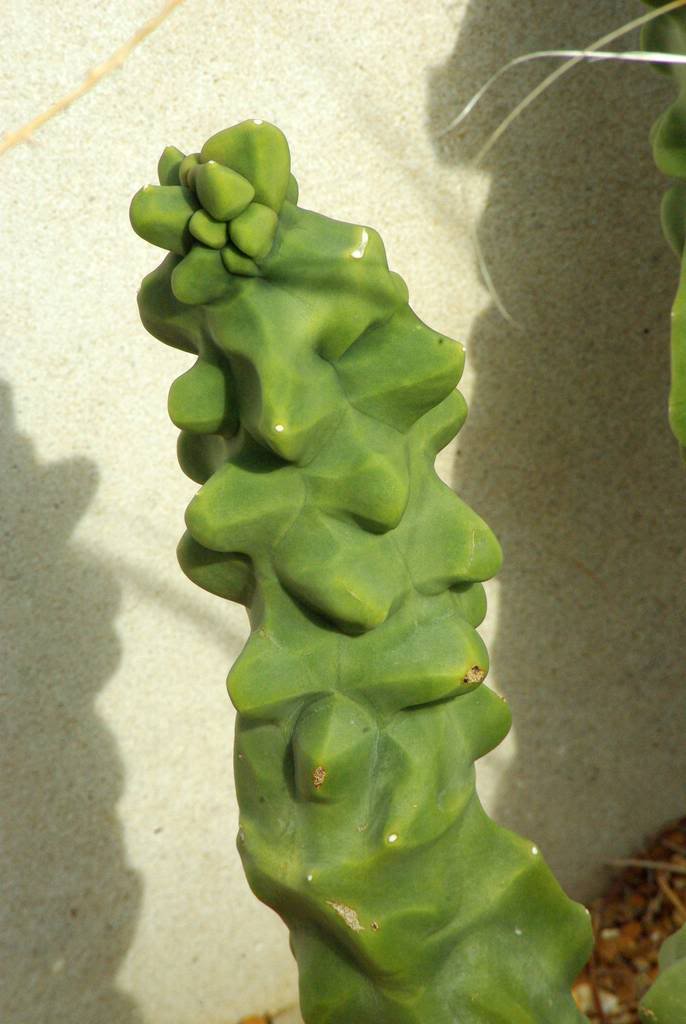 |
| Pachycereus schottii 'Monstrosus' |
A few Agaves over here, but there weren't enough labels for all of the plants -- one label could have been for any of three different species. One of these is Agave shawii -- maybe the second one?
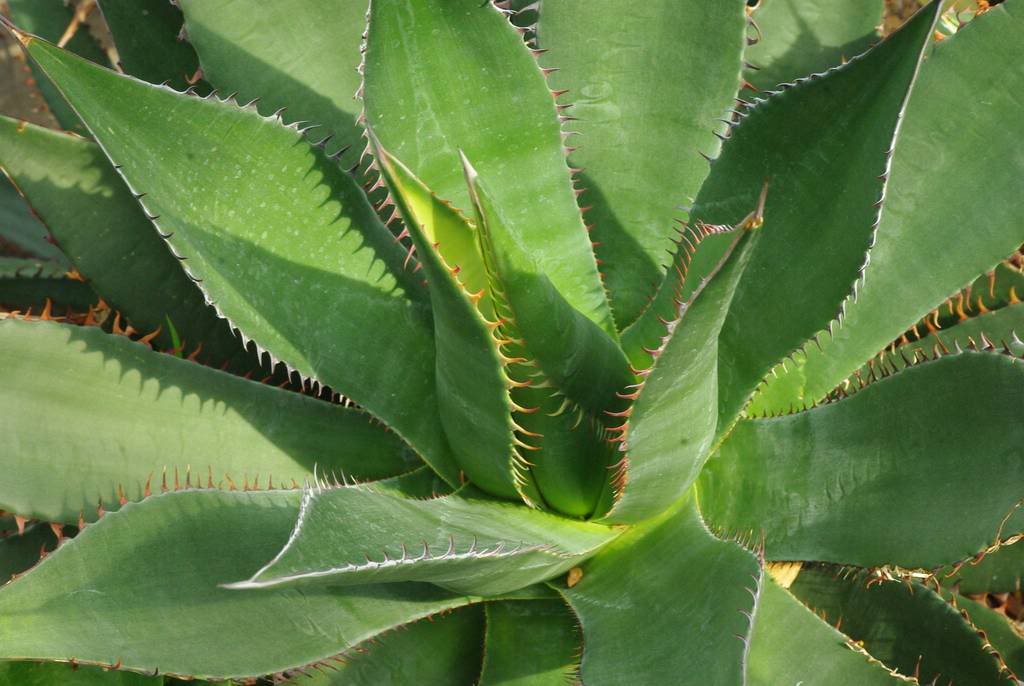 |
| Agave shawii ? |
Then this guy, which was familiar because I'm growing this exact plant (or as close as I can tell) in my succulent terrarium! I'm glad to finally have a positive ID for it (even though I've found out since that it's wrong!):
 |
| Labeled as Fouquieria diguetii but actually a Gasteria. |
There were other warm-climate plants up here near the exit too: a hedge of Rosemary (one of my absolute favorite garden scents!), some sages I wasn't familiar with (none blooming now), and some other plants. When my attention to plant tags starts waning, I know my visit is just about over (and/or it's time to get something to eat), so I decided to leave.
After walking out of the temperate house (into the rock garden that I visited before entering the Climatron), I saw a great example of how conifers and other evergreen shrubs and trees can be used to create a beautiful winter landscape:
And that wrapped up my visit to the garden. I'll surely be going back in a month or two, as I've never seen the gardens in the spring.
Hope you enjoyed the visit, and will consider visiting in person someday.
.

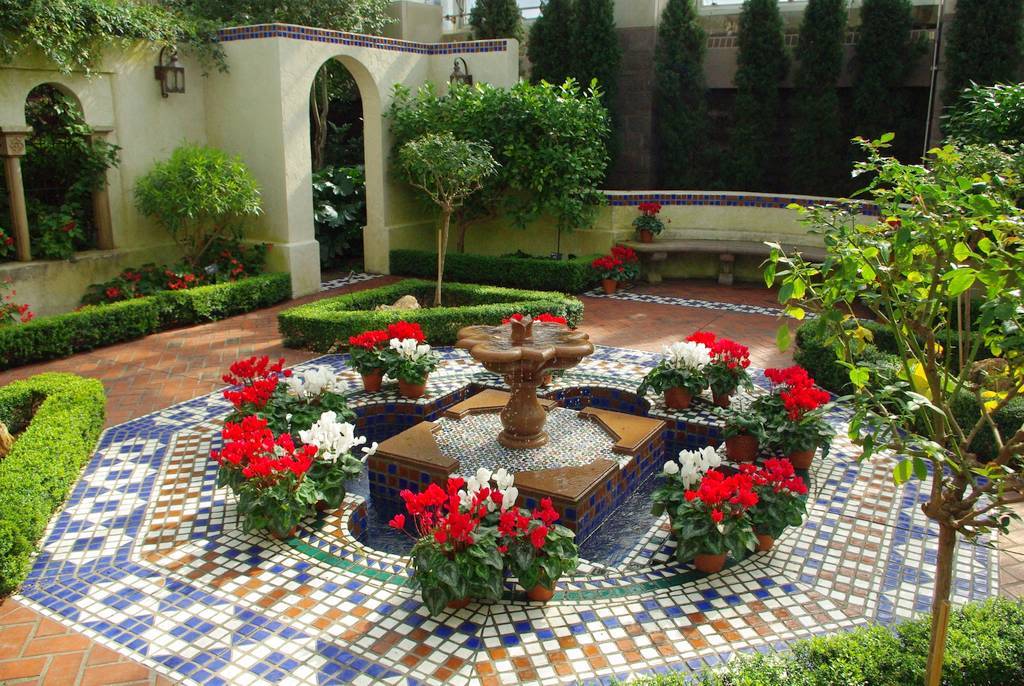
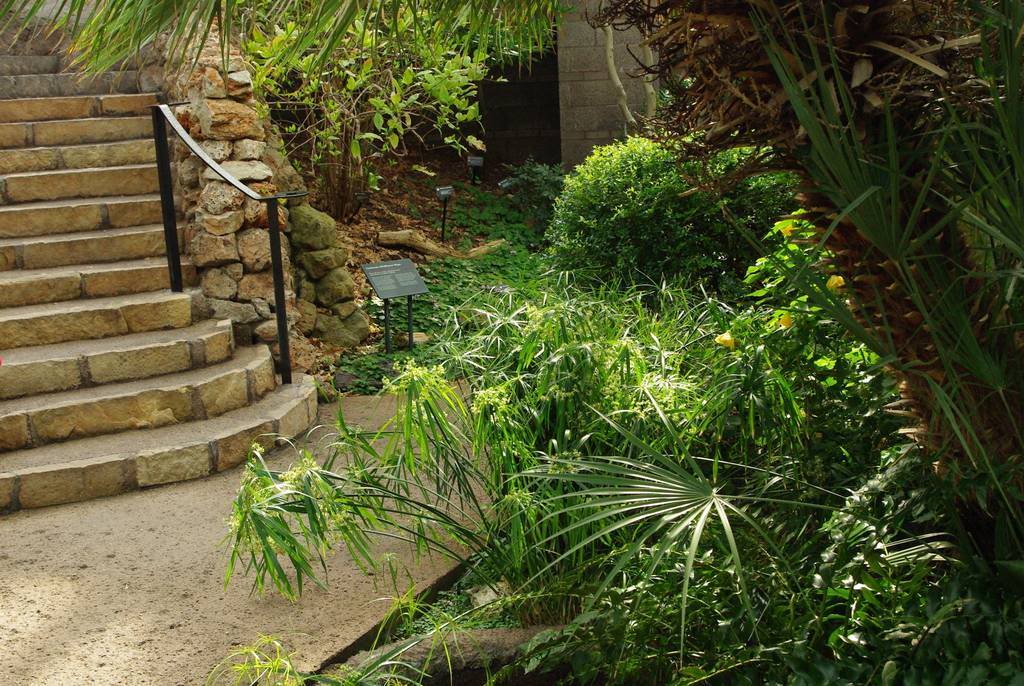


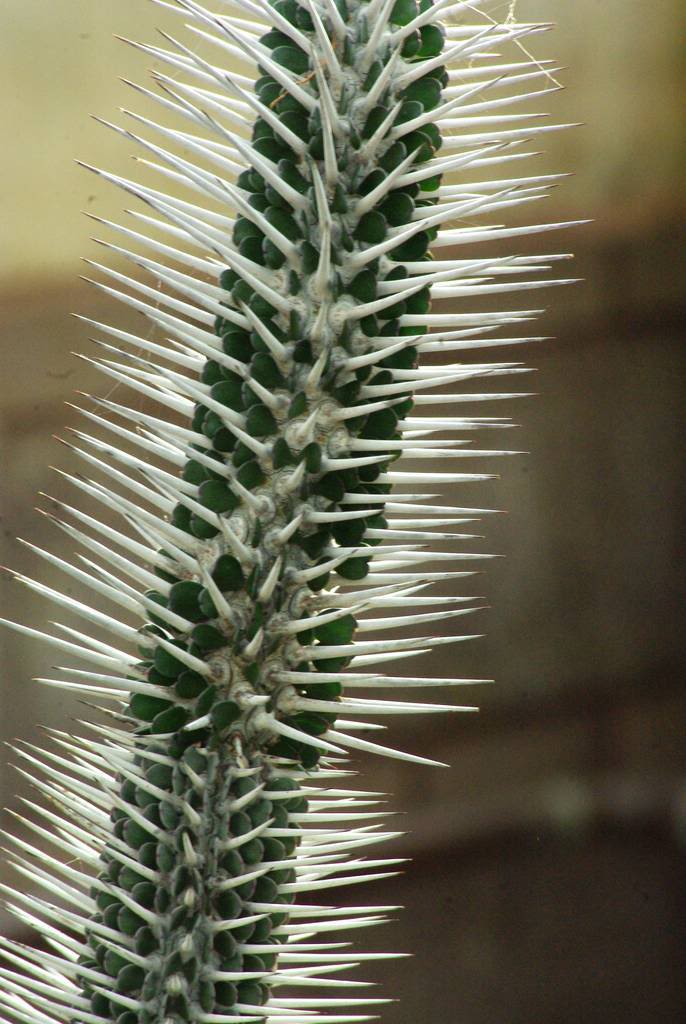

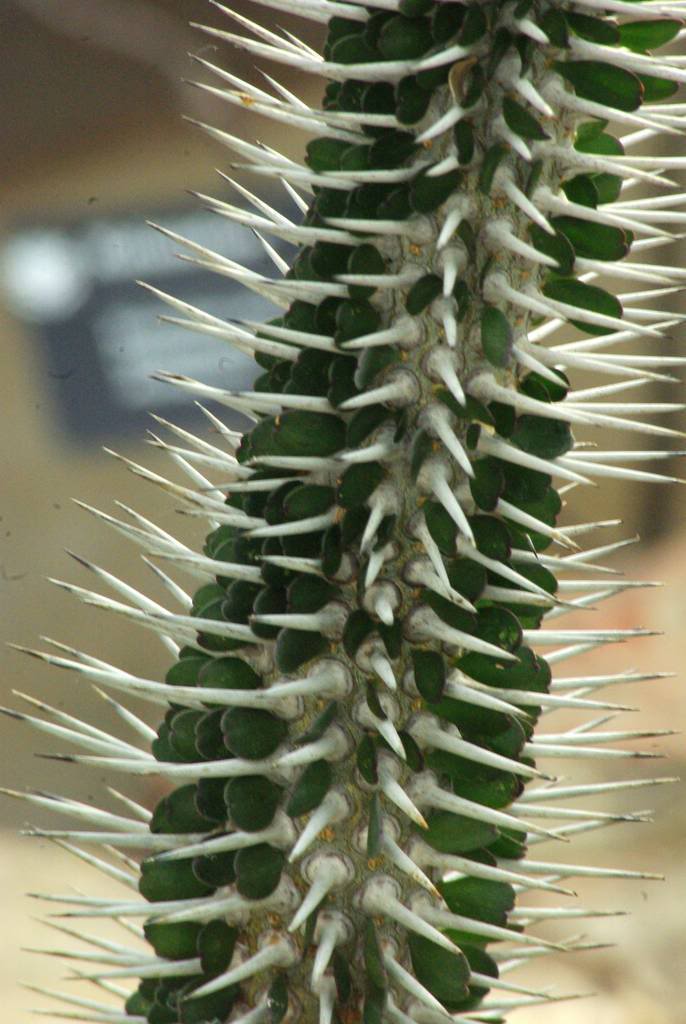


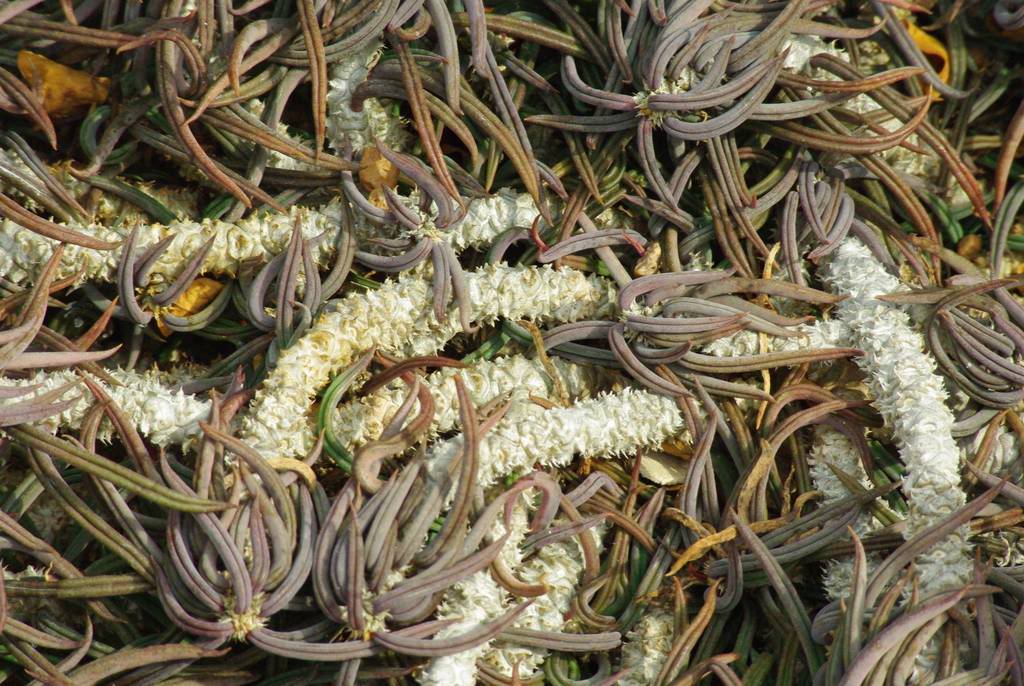

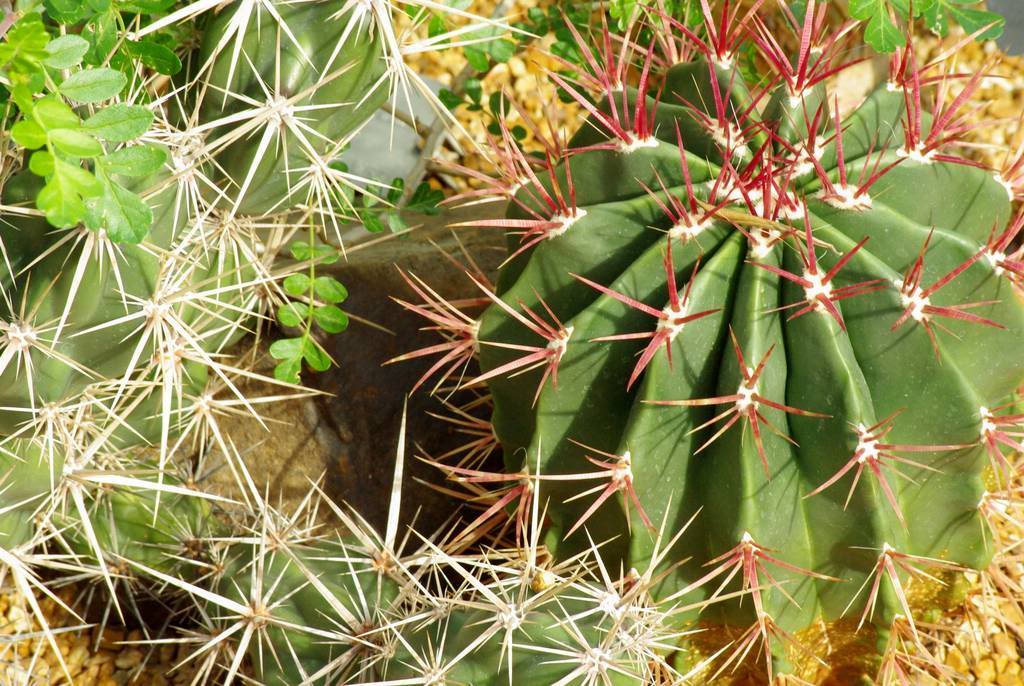

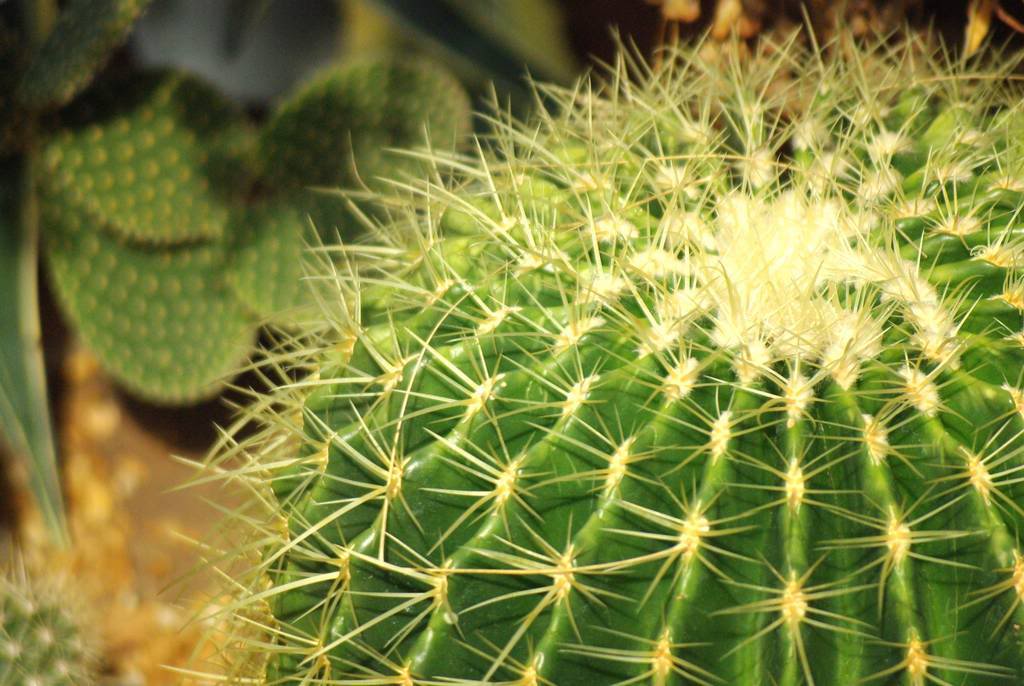
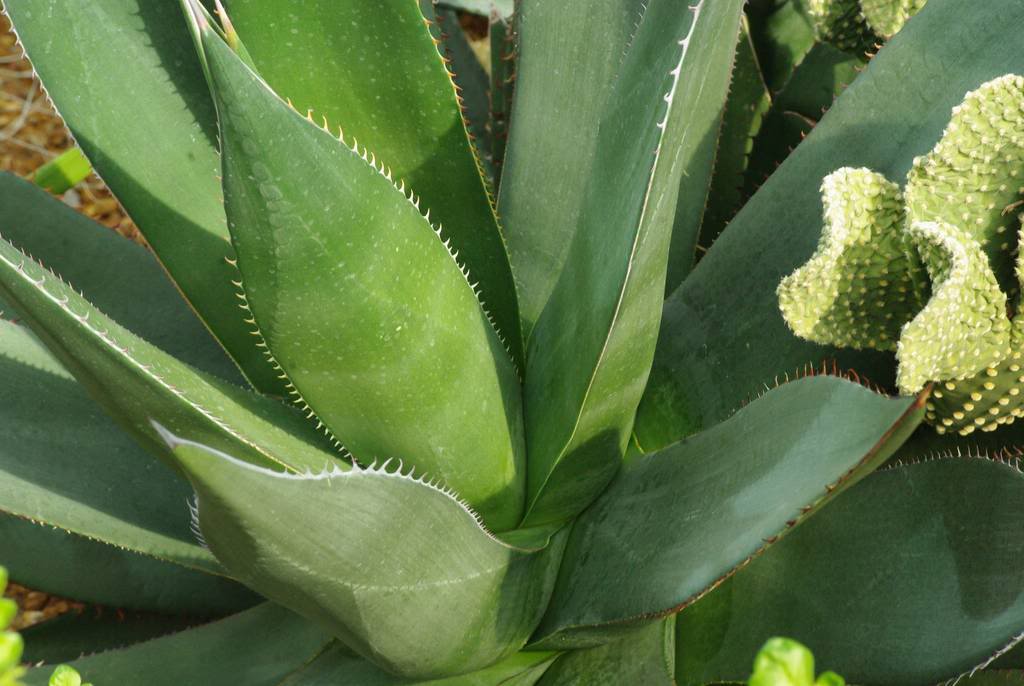

You captured some spiky good Cactus photos! And have definitely tempted me to visit someday.
ReplyDeleteI can't believe that court yard! All that is under glass? Phenomenal.
ReplyDeleteThe plants in your photos look just about perfect. There is zero leaf debris, not even any dirt or dust on them! They must have an army of gardener who tidy up on an ongoing basis.
A couple of notes:
The photos in the section "Only when I climbed the stairs that lead to the exit did I see the beds filled with the succulents and heat-loving cactus..." are actually not of cacti. The first one is a pachypodium (probably Pachypodium geayi), the 3rd is a fouquieria. The others in this section are other pachycauls (=plants with succulent trunks).
The plant in the 2nd to last photo is definitely not Fouquieria diguetii but a gasteria. I'm sorry they had labeled it wrong.
Gerhard: I knew those weren't cactus -- I did have the cactus photos first and forgot to change the text after I rearranged all of the images.
ReplyDeleteI thought I remembered you telling me that plant was a gasteria already. I wonder if that was another case of "tag between two or three plants"? Maybe it got moved a few inches after a clean-up and eventually got associated with the wrong plant? I'll have to see if I can contact them about fixing.
Alan, I've encountered that problem with plant labels before. It must be a monumental job tagging plants and making sure the tags get moved when a plant is moved, etc.
ReplyDeleteWhat a great series of photos Alan. The panoramic views give a great feeling of the plantings.
ReplyDeleteI love the architecture of the cactus, especially the vertical ones. There used to be a whole cactus house.
ReplyDeleteThanks for sharing these photos, the temperate house looks so inviting, and the mosaic courtyard is beautiful!
ReplyDeleteAnne: I knew there was something different years ago -- it was a cactus house. Thank you! They must have torn that down when they built this, right?
ReplyDelete